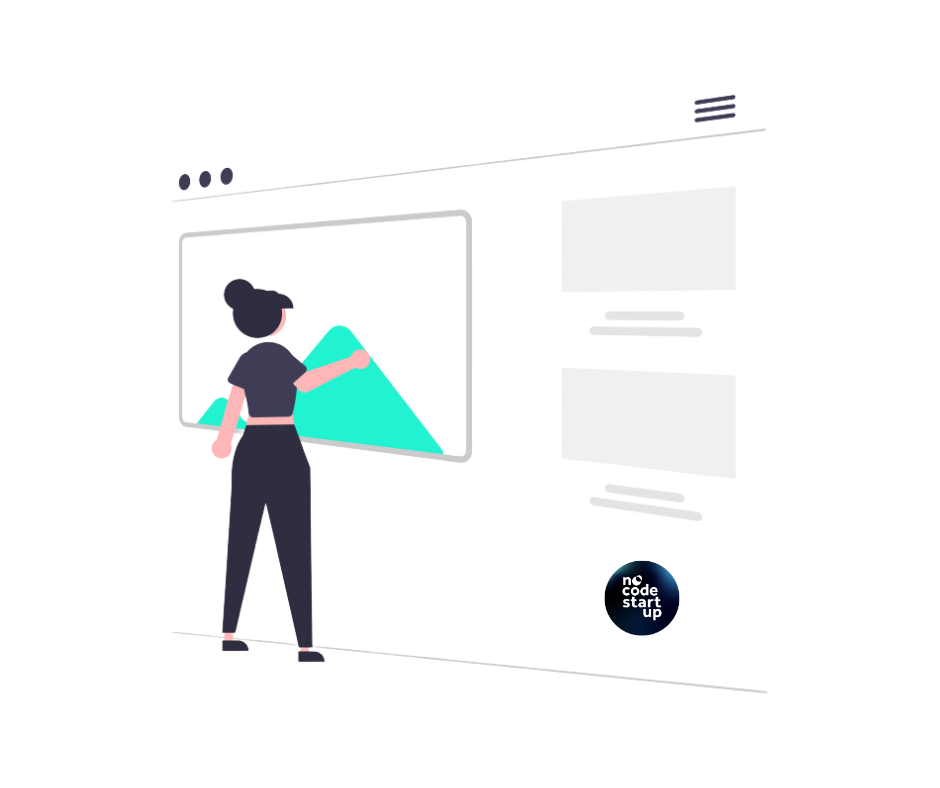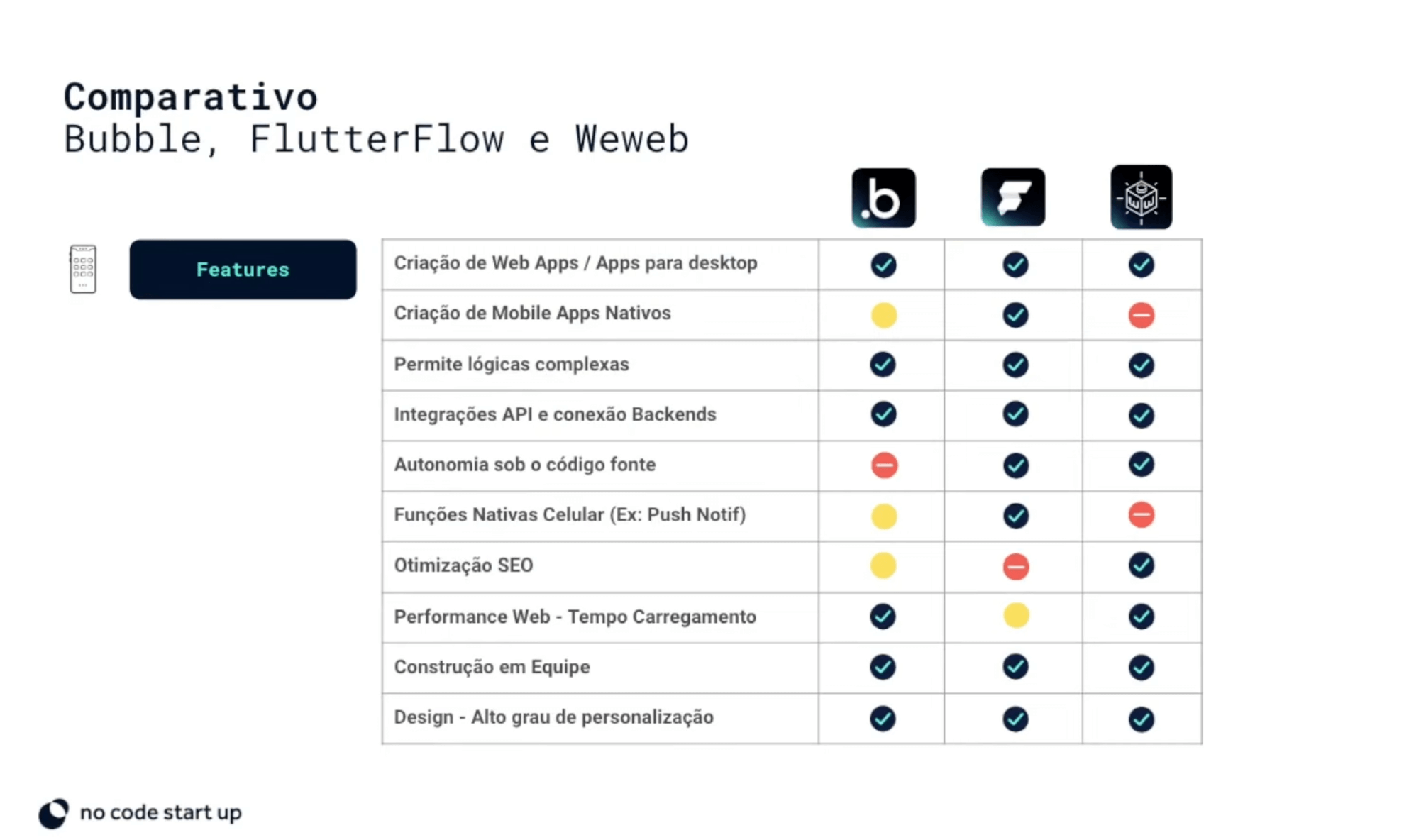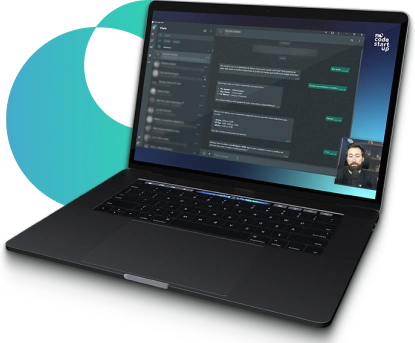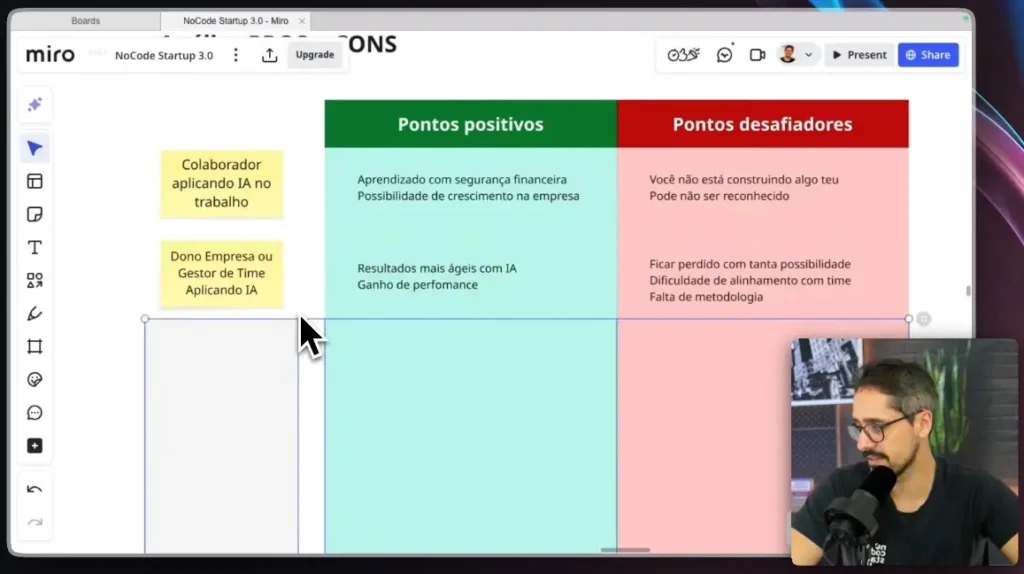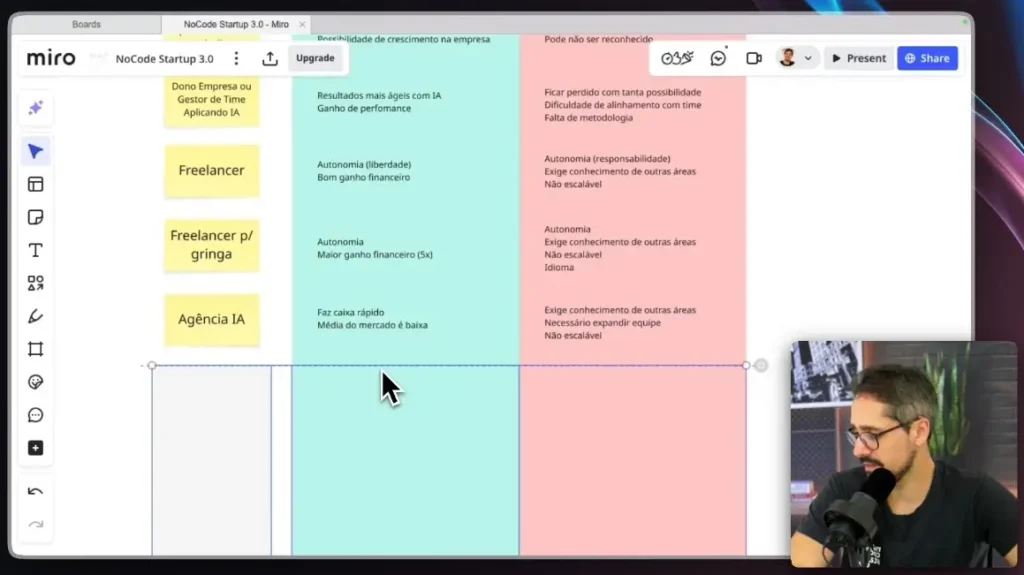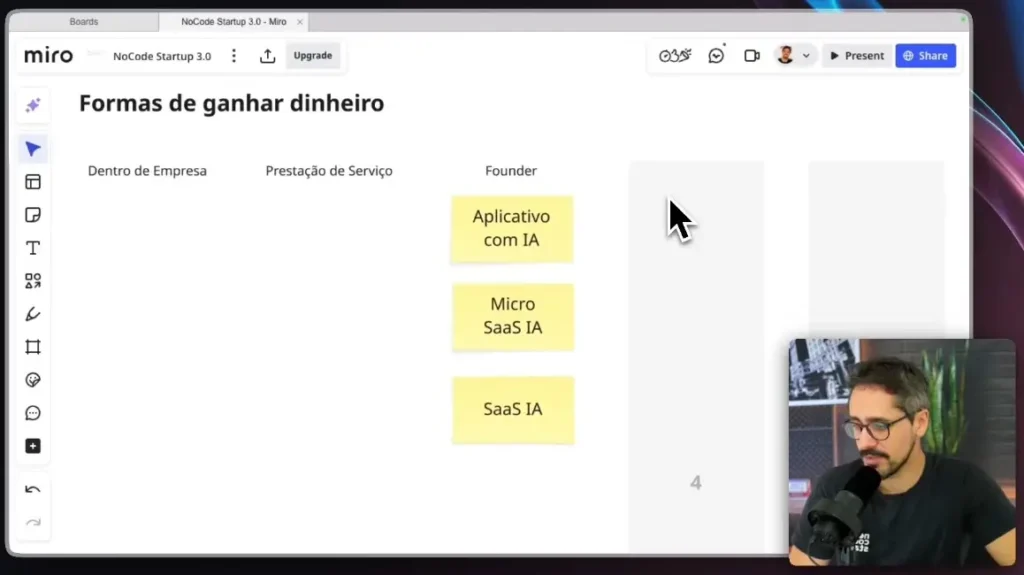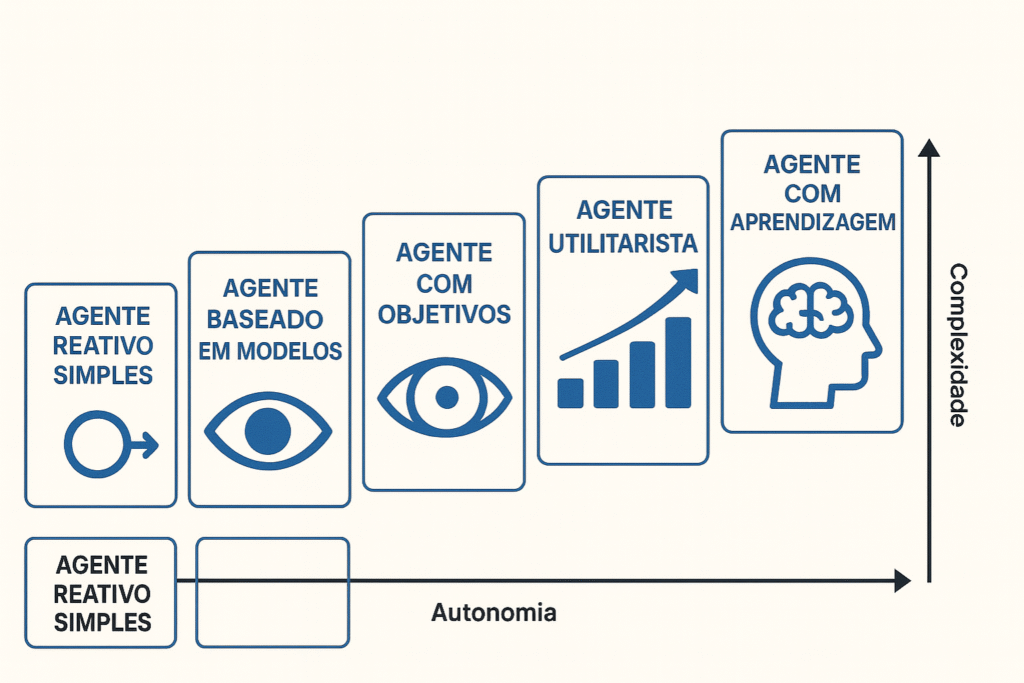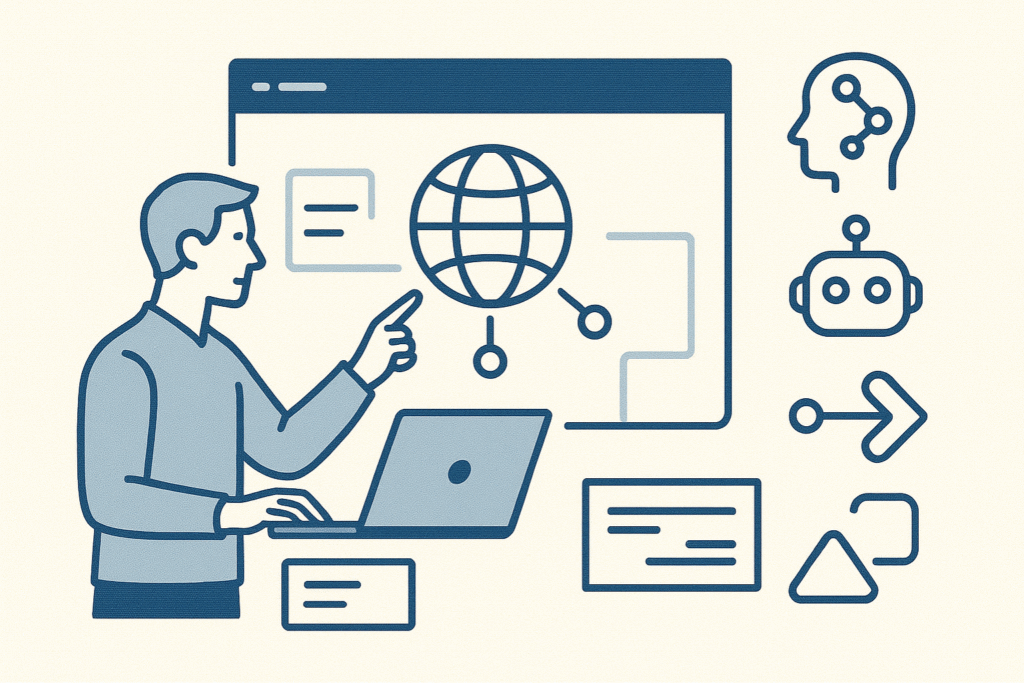Introduction to No-Code Tools
Have you ever thought about creating an app without needing to understand programming? Do you want a tool that fits perfectly into your project and is easy to use? If yes, you are in the right place. Here, we will explore what the best tool to create apps for your project, who can transform your idea into a real product simply and effectively.
Best Tool to create apps
Let's talk about three giants of the no-code industry: FlutterFlow, Bubble and WeWeb. These platforms offer incredible solutions for those who want to create native or web applications apps. Furthermore, we will discuss how you can use these tools to assemble complex logic and integrate different databases without a headache. Imagine creating projects visually, saving time and money. Are you curious? Keep reading to find out which tool is right for your next project!
Comparing Features: FlutterFlow, Bubble and WeWeb
Exploring the best tool to create apps without typing a line of code is a great opportunity. I'll tell you about three popular tools: FlutterFlow, Bubble and WeWeb. Each has its own strengths and may be better depending on what you need.
- FlutterFlow – Flexibility and Control: If you want to make apps that works on both your phone and computer, FlutterFlow is a great choice. It allows you to create applications visually and even gives you access to the source code. This is great because you can adjust the details however you want, giving your project more personality.
- Bubble – Ideal for Beginners: Bubble is perfect if you're just starting out. It brings together the design of the app and the system behind it (back end), all in one place. This simplifies things a lot. Currently, Bubble is focusing more on apps for the internet, but is already venturing into apps for cell phones as well.
- WeWeb – Superior Performance: For those who need a website that loads quickly and runs smoothly, the WebWeb is the right choice. He specializes in creating high-performance websites, ensuring an excellent user experience. Furthermore, it easily connects to databases, which allows you to create more complex functionalities without difficulties.
Choosing between FlutterFlow, Bubble and WeWeb depends on the type of app you want to create and what's most important to you, be it full control over the design, ease of use or performance. Each of these tools has something special to offer and could be the missing piece for you to get your project off the ground.
Advantages of FlutterFlow for Native and Web Applications
FlutterFlow has been gaining prominence as a tool innovative and affordable way to create apps without needing to program. If you're thinking about building an app, whether for a business, a personal project or even to test an idea, FlutterFlow could be the perfect choice. Let's see why:
- Platform Flexibility: With FlutterFlow, you can create applications that work on both cell phones and computers. This means that it doesn't matter if your user is on their phone on the bus or on their laptop at home, the experience will always be good.
- Extreme Customization: This tool gives you the freedom to make the app your own. You can adjust everything from the layout to the colors and features, ensuring the end result is exactly what you imagined.
- Simplified Integrations: FlutterFlow makes it easy to connect your app to various tools and services. This means that you can, for example, add payment systems, data analysis or social media features quickly, enriching your application without complications.
When you choose FlutterFlow, you are choosing a tool that not only simplifies app development, but also opens up a world of possibilities for customizing and integrating your project with other platforms. This combination of ease, flexibility and power makes FlutterFlow an excellent option for anyone who wants to turn ideas into reality quickly and efficiently.
Bubble: Ideal for Learning and Developing Web Apps Quickly
Bubble is a fantastic platform for anyone who wants to start developing applications without worrying about complex code. Imagine you want to build an app, but you don't know how to program or you simply want to speed up the process. That's where Bubble comes in, with a simplified and very intuitive approach.
- User-friendly Interface: The platform is uncomplicated and designed for anyone to use. Even if you've never programmed before, Bubble makes it easy to understand through a “drag and drop” interface. This makes the process fun and accessible.
- Complete Integration: With Bubble, you take care of the look and logic of your app in the same place. This means less headaches and more efficiency as you don't have to switch between different tools for the front end and back end.
- Agile Development: The platform allows you to quickly create complete applications. Bubble offers a range of pre-defined functions that you can add to your project just by selecting and positioning where you need them. This is ideal for prototyping ideas and testing concepts without wasting time.
Bubble is ideal for beginners and also for entrepreneurs who need a solution quickly and effectively to create applications. With it, you can turn your ideas into reality without delving into the technical details of programming. This tool opens doors so you can focus on what really matters: the design and functionality of your app.
WeWeb: High Performance in Web Applications
Have you heard of WebWeb? If you're looking for a tool to create incredible websites, you'll definitely want to know more about it. WeWeb stands out a lot when it comes to practicality and performance in web projects. Let's better understand why this is.
- Simple integration: One of the great advantages of WeWeb is how it makes it easy to integrate your project with various databases and external services. This means less headache to configure and more time to create interesting features.
- Cutting-edge performance: WeWeb guarantees that your website will not only function well but also load quickly. This is essential nowadays, where users' patience for slow websites is practically zero.
- Complexity without complication: If your project requires a lot of customization and more complex integrations, WeWeb offers the right tools. It allows you to manipulate data in an advanced way without needing to be a programming expert.
Choosing WeWeb means invest in quality and efficiency. It is robust enough to handle high technical demands, but simple enough for anyone to use. It's a tool that perfectly balances power and usability, making it a great choice for any web project.
Conclusion: Choosing the Best Tool to Create Apps
How about getting your hands dirty and starting to use what you learned about no-code tools today? Choose the right tool It can be a game changer for your project. Don't be afraid to experiment and find the one that best fits your needs. Each tool has its peculiarities and, certainly, one of them can offer exactly what you need to get your idea off the ground and transform it into a functional application or website.
NoCode StartUp not only teaches, but also inspires to create. When you learn about FlutterFlow, Bubble, WeWeb and other no-code technologies with us, you gain the freedom to develop your own solutions, without relying on complex programming. Imagine the possibilities: creating a business, launching an app, all with the security of having learned from someone who understands the subject. What's more, with the integration of artificial intelligence, your creations will always be at the forefront of technology.
Finally, remember that every step you take in the no-code universe is a learning experience. Explore without fear: Test different platforms, apply new ideas, and watch your creations come to life. We are here to support you on this journey. Let's innovate together and break down barriers, transforming ideas into reality with creativity and efficiency. Are you ready to get started?
